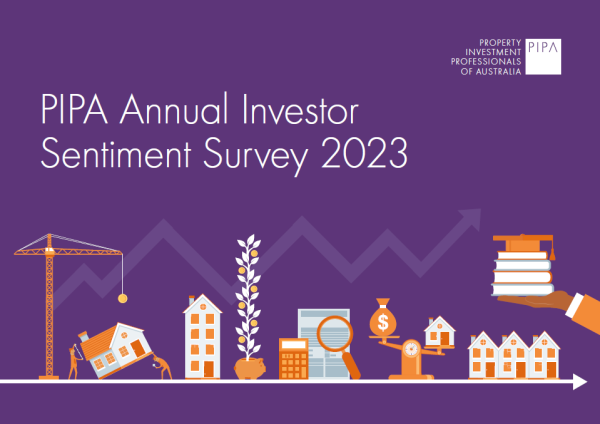Key property market challenges from 2023 to persist next year
Jan 2024Karen Millers
Categories
Location ReportsMedia releasesNational market updatesPersonal advisersPIPA AdviserPIPA Annual Investor Sentiment SurveysPIPA Member ProfilesPIPA video updatesPIPA webinarsPodcastsProperty advisersProperty newsLatest Articles
Which property cycle are we in?
Rent rises ease but crisis’ link to population density found to be tenuous
Jordan van den Berg: The ‘Robin Hood’ TikToker taking on Australian landlords
Victorian property investors face yet another new property tax as council tests levy
Supply shortages, interest rate worries, and construction challenges are among the themes expected to carry through to 2024.
While it won’t be a boom year, according to Hotspotting’s Terry Ryder, it will be steady and sustainable year of growth ahead.
“2024 is shaping up as a positive year in residential real estate, continuing the momentum that built up in key markets as 2023 evolved,” said Ryder.
“Just as 2023 defied the forecasts of economists and news media, delivering solid price growth in most jurisdictions, 2024 will do better than the pessimistic predictions that emerged late in 2023.”
Ryder added that the major factor upending predictions of property price decline in 2023 was a market shortage. This was exacerbated by considerable population growth, along with the lack of forthcoming supply due to ongoing building and construction challenges.
Property Investment Professionals of Australia (PIPA) Chair, Nicola McDougall, likewise noted that the top determinants of the market were supply and demand.
What will drive house prices up in 2024?
Multiple factors could boost Australian property prices in 2024.
“It appears that inflation is moderation more quickly than the central bank had forecast, which augurs well for lower interest rates this time next year,” said McDougall.
“While property prices in many areas are likely to continue strengthening next year, reduced interest rates at a time where there continues to be more demand than supply, is set to potentially drive property prices higher again.”
A lack of supply will continue pushing Australian house prices up, with both Propertybuyer.com.au’s Rich Harvey and Zippy Financial’s Louisa Sanghera expecting this supply challenge to remain a key feature of price rises in 2024.
Herron Todd White’s Kevin Brogan noted that challenges in the building sector remain, with construction of new homes remaining subdued, thereby another factor likely to add upward pressure on home prices.
MCG Quantity Surveyors’ Mike Mortlock noted that any cash rate relief could also add fuel to the price rises:
“Any reduction in rates will certainly supercharge sentiment but more importantly unlock extra borrowing capacity, which will put pressure on prices.”
He added that, due to the collapse of the apartment market construction pipeline, apartment prices are expected to rebound, particularly larger properties in boutique developments which are suitable for downsizers.
Governments turn the corner on poor public policy
Among multiple factors keeping a lid on more homes being delivered are government policies.
“All levels of government – but state governments in particular – stymie developments with restrictive taxes and red tape which slows everything down,” said Ryder.
“Policy changes are invariably detrimental to investors which deters the cohort that supplies 90% of the homes people rent – and that worsens the rental shortage.”
McDougall also raised concerns, noting that policymakers have generally treated investors ‘appallingly‘ for a long time despite their providing a large majority of rental homes.
“Unfortunately, as the rental crisis was some nine years in the making, it will be many years before rental markets find their equilibrium again, because of the time it takes to construct new dwellings,” said McDougall.
“In the meantime, though, encouraging investors to purchase as well as potentially incentivising them to stay over the long-term, can be a relatively quick and easy strategy to improve rental supply.
“Over the past year, it does appear that policymakers at all levels of government are more open and receptive to the vital role that investors play in society and in the provision of the majority of rental housing.”
Brogan noted that manufactured homes are being considered as an option to deliver quality, quick, and affordable housing; indeed, Brogan highlighted that the New South Wales Government has embraced manufactured homes.
Cash and convenience
Harvey said upgraders and downsizers are two key segments of the market to keep an eye on for 2024.
“Those upgraders with strong borrowing capacity will be seeking properties with larger home offices, extra living space, and lifestyle features for growing families,” he said.
“Cashed-up downsizers telling and seeking to top up their super funds will be looking for low maintenance, high quality apartments and townhouses located in key lifestyle suburbs or near the beach.”
Harvey added that luxury buyers will also be on the hunt for both turnkey and knock down opportunities in some of Sydney’s most exclusive postcodes.
“Good numbers of expats and higher net worth locals will be chasing highly limited listings.”
Originally Published: Henry Thai | The Property Tribune | 29 December 2023
“Licensed by Copyright Agency. You must not copy this work without permission.”




